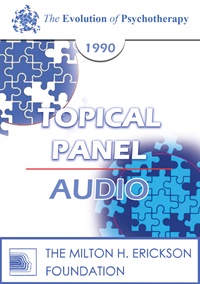EP90 Panel 01 - Essential Aspects of Psychotherapy - James F.T. Bugental, PhD; Albert Ellis, PhD; Mary Goulding, MSW; Carl Whitaker, MD
- Average Rating:
- Not yet rated
- Topic Areas:
- Topical Panels | Psychotherapy | Experiential Therapy | Family Therapy | Psychodynamics
- Categories:
- Evolution of Psychotherapy | Evolution of Psychotherapy 1990 | Pioneers in Couples and Family Therapy
- Faculty:
- James Bugental, PhD | Albert Ellis, PhD | Mary Goulding, MSW | Carl Whitaker, MD
- Duration:
- 1:00:13
- Format:
- Audio Only
- Original Program Date:
- Dec 12, 1990
- License:
- Never Expires.
Description
Description: Moderated by Camillo Loriedo, this panel explores key psychotherapy concepts. James Bugental emphasizes overcoming objectification, Albert Ellis critiques rigid therapy models, Mary Goulding advocates for client autonomy, and Carl Whitaker highlights therapist growth. The panel agrees that realistic hope is more beneficial than optimism or hopelessness, also discussing family dynamics and creativity in therapy.
Educational Objectives:
- To compare and contrast clinical and philosophical perspectives of experts.
*Sessions may be edited for content and to preserve confidentiality*
Credits
Handouts
| Timestamped Transcript (748.8 KB) | 16 Pages | Available after Purchase |
| Ericksonian Learning Snapshot (268 KB) | 2 Pages | Available after Purchase |
Faculty
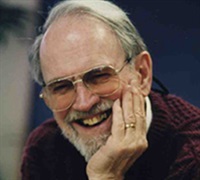
James Bugental, PhD Related Seminars and Products
James Bugental, PhD, was one of the predominant theorists and advocates of the Existential-Humanistic Therapy movement. He received his Ph.D. from Ohio State University in 1948, was named a Fellow of the American Psychological Association in 1955, and was the first recipient of the APA's Division of Humanistic Psychology's Rollo May Award. James devoted himself to teaching and writing; he was also an Emeritus Professor, Saybrook Institute, and an Emeritus Clinical Lecturer (formerly Associate Clinical Professor), Department of Psychiatry, Stanford University Medical School. In 1987, he was the recipient of the first annual Rollo May Award of the Mentor Society "for contributions to the literary pursuit," and in 1986, he received a certificate "in recognition of the distinguished contribution to the discipline of Clinical Psychology" from the Division of Clinical Psychology, American Psychological Association. He was a past president of the Association for Humanisitic Psychology and served on the editorial boards of eight professional journals. Bugental has written 150 articles, reviews, comments, and chapters in books edited by others.
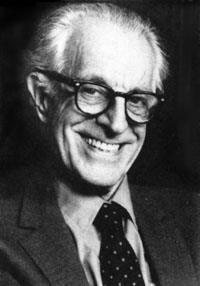
Albert Ellis, PhD Related Seminars and Products
Albert Ellis, PhD, was an American psychologist who in 1955 developed Rational Emotive Behavior Therapy (REBT). He held M.A. and Ph.D. degrees in clinical psychology from Columbia University and American Board of Professional Psychology (ABPP). He also founded and was the President of the New York City-based Albert Ellis Institute for decades.
He is generally considered to be one of the originators of the cognitive revolutionary paradigm shift in psychotherapy and one of the founders of cognitive-behavioral therapies.[2]
Based on a 1982 professional survey of US and Canadian psychologists, he was considered as the second most influential psychotherapist in history (Carl Rogers ranked first in the survey; Sigmund Freud was ranked third).[3][4] Psychology Today noted, "No individual—not even Freud himself—has had a greater impact on modern psychotherapy."[5]
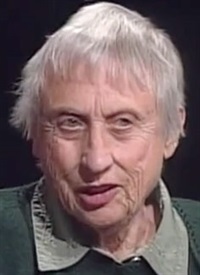
Mary Goulding, MSW Related Seminars and Products
Mary Goulding, MSW, is one of the leading exponents of Transactional Analysis. Along with her husband Robert Goulding, she developed an approach called Redecision therapy which synthesizes Transactional Analysis and Gestalt. Together they founded the Western Institute for Group and Family Therapy in Watsonville, California, and co-authored two professional books about their approach. There is also an edited volume about the Redecision model. Mary has served as a member of the Board of Trustees of the International Transactional Analysis Association and is a Teaching Member of that organization. Her M.S.W. was granted in 1960 from the School of Social Welfare, University of California, Berkeley.
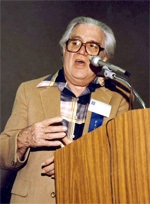
Carl Whitaker, MD Related Seminars and Products
Carl Whitaker, MD, was an American physician and psychotherapy pioneer family therapist. Whitaker is most well-known for acknowledging the role of the entire family in the therapeutic process. He is the founder of experiential family therapy, or the symbolic-experiential approach to therapy. Rather than scapegoating one family member or even a specific family problem, experiential family therapy looks at the entire family system. Several other approaches to family therapy have drawn heavily from Whitaker's theories.


